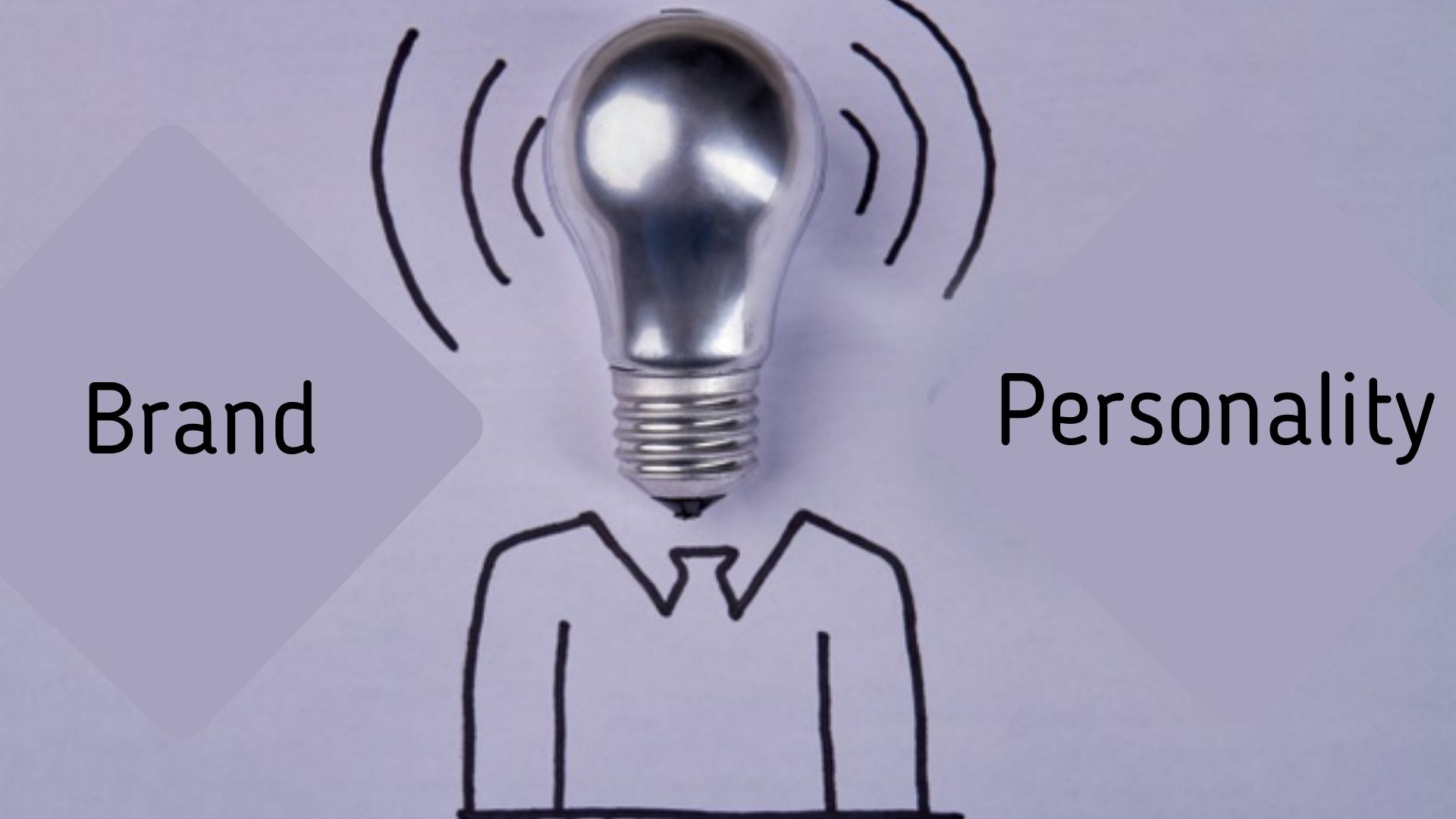Brand personality is a set of human characteristics that a brand possesses. A brand’s personality trait is something to which the target audiences, users, or consumers of the brand can relate to and appreciate.
Customers enjoy opting for a brand that matches their personality traits. Five dimensions of brand personality are-
- Excitement (carefree, spirited, and youthful)
- Sincerity (kindness, thoughtfulness, and an orientation toward family values)
- Ruggedness (rough, tough, outdoorsy, and athletic)
- Competence (successful, accomplished, and influential, highlighted by leadership)
- Sophistication (elegant, prestigious, and sometimes even pretentious)
What is Brand Personality?
Brand Personality refers to a collection of human traits and characteristics to a brand, which helps customers perceive and connect deeply with a brand.
Such characteristics can be adjectives that can paint a clear picture of the brand, such as honesty, sophistication, innovation, etc. It can also include demographic details such as age group, gender, or socio-economic class that the brand targets. For example- feminine personality traits for brands like Maybelline, youthful characteristics of Coca-Cola, etc.
A brand personality projects a human aspect of the brand and helps attract the right target audience who will engage with them.
How to Find Your Brand Personality Traits
It is a tricky process to develop the right personality of your brand that represents your story and doesn’t repel audiences. There are two ways to find out what brand personality clicks with your brand:
1. Aaker’s Dimensions of Brand Personality Framework
Jennifer Aekaer came up with this framework to determine a brand personality through 15 traits placed into five personality dimensions: Sincerity, Excitement, Competence, Sophistication, and Ruggedness. Brands can see which of the 15 characteristics reflect their brand image the best and select the personality that will anchor their business efforts.
2. 12 Brand Archetypes Model
Another framework that can be approached is the 12 brand archetypes model, based on psychologist Carl Jung’s theory of archetypes. These are the Innocent, the Regular Guy, the Hero, the Outlaw, the Explorer, the Creator, the Ruler, the Magician, the Lover, the Caregiver, the Jester, and the Sage. These archetypes come with their own set of strengths and weaknesses and result in a particular brand message. For example- Google falls under the Sage brand archetype while Disney is a Magician.
How to Express Your Brand Personality?

Now that you have found your brand personality, it is time to tailor all messages to communicate these characteristics. There are three channels to do this:
1. Visual Identity
This encompasses all visual elements in a brand’s operations, such as the brand logo, color schemes, fonts, pictures, designs, website layout, etc. With a consistent format, these can aid in better brand recognition and sales.
2. Brand Messages
Messages here refer to all verbal communication methods of the brand, which need to be rooted in the brand personality. This includes the brand’s tone, slogans, taglines, vocabulary, spellings, messages, etc.
3. Brand Activities
Brand activities involve all the actions that are undertaken by the business. They reflect upon how customers perceive the brand and form an emotional liking or dislike for the brand. This could be an environmentally-friendly packaging initiative, anti-animal-cruelty stance, kind of resources used, etc.
Need for Brand Personality
There are plenty of reasons why having a brand personality is essential. The 4 points below highlight the essential functions of brand personality that contribute to brand success:
1. Brings out your brand story
A brand story is a spine that holds together all endeavors of a brand; therefore, it is essential to connect customers to the brand story before moving on to marketing and sales. This includes the brand values, what your brand stands for, why it is unique, what it strives to change, how customers will be a part of your journey, etc.
A brand personality ties together this whole story and helps customers emotionally relate to a brand, contributing to brand awareness and customer loyalty.
2. Makes a brand stand out
The cut-throat completion in business necessitates the need for brands to be creative and set themselves apart from their competitors. A brand personality instills a clear voice and style to a brand, which will result in quick brand recall and easy differentiation from other brands if consistently projected over time. Once your products derive the desired results, customers will continue to buy from your brand in the future.
3. Helps humanize your brand
People are emotionally motivated beings, so it becomes vital for brands to form an emotional bond with their customers. This moves priorities beyond sales, as people are driven to choose brands only when they can relate to them. Adding a brand personality, which is often similar to that of the target audience, helps reach out to customers, communicate ideas, and motivate preferences in your brand’s favor.
4. Empowers brand strategies and goals
A brand personality is a sharp tool that helps energize many other aspects of a brand’s operations. It aids in increasing brand equity, which is the value a company holds in the market. It adds a qualitative benefit to your brand, which allows for a deeper connection with audiences. This boosts brand awareness, sales, and customer engagement with the brand. A brand personality also helps brands cut through the noise and attract the right audiences who want their products or services.
Examples of Brand Personality Traits

Different brands opt for different brand personality traits for instance Dove opts for sincerity as its personality pulls in feminine consumers. People like to opt for the products and services from brands they like and relate to.
When people do not have a clear sense of a brand personality, they will keep on scrolling but do not opt for the CTA. Let us now take a look at different brand examples with their specific brand personality traits are-
1. Sincerity
Apple belongs to sincere brand personalities that put forward its brand identity as a change-maker and visionary. They are sincere towards empowering their customers by unleashing their creativity. The whole strategy behind making a sincere brand personality of Apple is to be helpful and more trustworthy than the other competitors in the market.
2. Excitement
Tesla is a brand that comprises the excitement trait by being the “world’s first genuine green car brand.” Another brand, Disney is also associated with creative vision and imagination that excite the target audiences.
3. Competence
With the brand personality of competence, Microsoft is one brand that is popular for offering highly efficient and top-notch services in its industry.
4. Sophistication
A great brand that comprises the brand personality of Sophistication is Chanel that offers women’s high fashion and ready-to-wear clothes, luxury goods, and accessories.
5. Ruggedness
Brands like JEEP, REI, and Harley Davidson have their branding strategy that matches the rugged human personality. Their marketing and social media campaigns around the world also comprise rugged personalities.
Wrap Up!
Now, you can define brand personality as a feature or characteristic of a business that makes it human in the eyes of a target consumer. You can communicate it via visuals, tone of voice, branding campaigns, customer service policies, words, actions, etc.
With consistency in your brand personality trait, you will let your consumers choose you and trust you. On the other hand, if you have an inconsistent and generic personality, then it would be tough for you to stand out while trying to pull in the attention of your dream clients.
How important do you consider brand personality for a business in optimizing the brand presence?
Pinky is an MBA in Marketing from the University of Mumbai. She loves helping people out in learning Marketing and sharing latest ideas and tactics for growing businesses.
